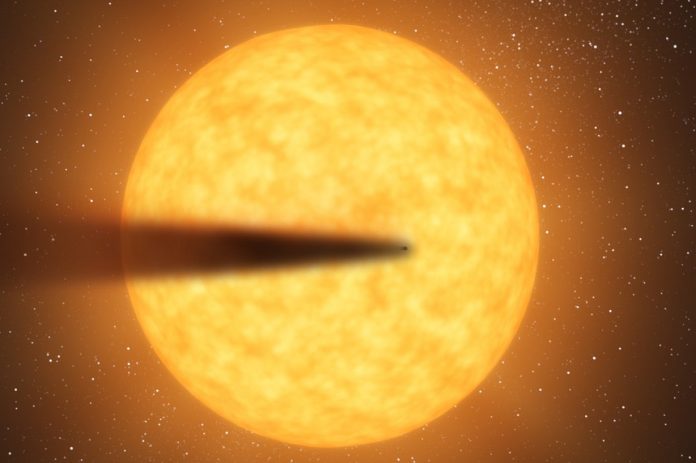Some 97 light years from Earth, a Neptune-sized exoplanet is disappearing.
Discovered in 2012, GJ 3470b is about four times the size of Earth and orbits its star at a tenth of the distance between Mercury and the Sun. As a result of this proximity, the planet is wasting away at a record pace, scientists reported on Thursday in the journal Astronomy & Astrophysics, as stellar radiation and wind blows off its upper atmosphere.
“GJ 3470b is losing more of its mass than any other planet we’ve seen so far; in only a few billion years from now, half of the planet may be gone,” said study co-author David Sing, an exoplanet expert at Johns Hopkins, in a statement. “This is the smoking gun that planets can lose a significant fraction of their entire mass.”
The researchers, led by astronomer Vincent Bourrier of the University of Geneva, observed three transits of GJ 3470b using the Hubble Space Telescope, which enabled them to calculate the planet’s probable evaporation rate.
The team estimates that GJ 3470b may have already lost as much as 35 percent of its mass since it was born two billion years ago. All that remains of those layers is an extended gas cloud that envelopes this fading world.
The results of the study shed light on the curious absence of similarly Neptune-sized planets observed in close orbits around their stars. Scientists have discovered loads of “hot Jupiters,” large gas giants close to stars, as well as Earth-scale exoplanets that have a stellar front row seat. Bourrier’s team suggests that Neptune-sized planets may occupy tight orbits too, but they simply can’t take the heat, and eventually diminish into smaller worlds.








